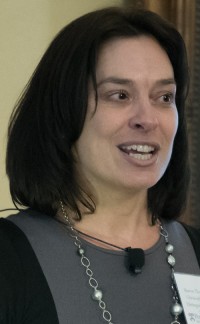New Interdisciplinary Center to Promote the Study of Human Intelligence and Behavior

A new center at Penn Arts and Sciences has been established to unite researchers, programs and initiatives involving human intelligence and behavior across the University. Known as MindCORE (Center for Outreach, Research, and Education), the center will promote multidisciplinary research aimed at fundamental questions of human cognition, intelligence and behavior. It will also seek to engage broad audiences with the latest research findings and provide a home for several undergraduate and graduate programs.
Penn Arts and Sciences Dean Steven J. Fluharty, who directed the School’s undergraduate Biological Basis of Behavior major for more than 10 years, noted, “Penn has a long history of excellence in research and education on the brain and behavior, with extensive cross-School collaborations already in place. MindCORE will build on these strengths and ensure that Penn remains at the cutting edge in this new era, where researchers are making game-changing discoveries into phenomena including brain abnormalities, decision-making and the fundamental nature of human intelligence.” MindCORE is one of the School’s key endeavors under the “Mapping the Mind” initiative identified in the School’s strategic plan, Foundations and Frontiers.
The Center’s inaugural faculty director, Sharon Thompson-Schill, Christopher H. Browne Distinguished Professor and Chair of Psychology, notes that Penn has an array of mind-brain-related centers, institutes and programs that have grown organically over the years. “MindCORE will help to consolidate these activities within one umbrella organization and will support them strategically with resources such as seed funds, technology, staffing and programming to make them more efficient, visible and impactful,” she commented.
A main focus of the center will be to catalyze new research on the mind and foster innovative collaborations between different departments and centers within Penn Arts and Sciences, as well as with other Penn schools including the Perelman School of Medicine, Wharton, Engineering, and the Annenberg School for Communication.
A variety of MindCORE programs, including lectures, partnerships with local museums and schools, and community science initiatives, will engage the academic community and the public. MindCORE will also facilitate more interaction among a number of brain- and behavior-related undergraduate programs including psychology, biology, linguistics, and Biological Basis of Behavior, and will become the home of the Cognitive Science major. In addition, there will be new opportunities for undergraduate and graduate students and postdoctoral fellows to conduct research and disseminate the results.
Serving as MindCORE’s executive director is Heather Calvert. Ms. Calvert was the managing director of the Botswana-UPenn Partnership, the Perelman School of Medicine’s global health program in Botswana focused on education, clinical treatment, and research from 2008 to 2017, a time when the program grew from four to more than 250 employees. Previously she was the associate director for the S.S. Huebner Foundation for Insurance Education housed within the Wharton School.
MindCORE is led by an Executive Committee comprising Ms. Calvert and Dr. Thompson-Schill, along with David Brainard, professor of psychology; Joseph Kable, associate professor of psychology; Nicole Rust, associate professor of psychology and Michael Weisberg, professor of philosophy, and advised by an 18-member multi-school Faculty Advisory Board. MindCORE will officially launch in January 2018 under the motto: Penn’s hub for the integrative study of the mind, connecting researchers across our campus and with our community.
